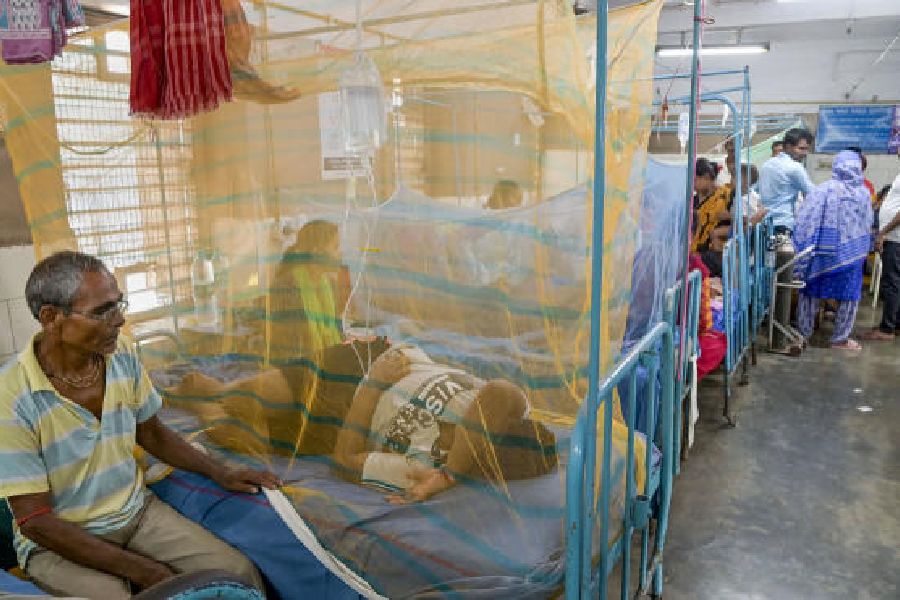The state health department has decided to appoint phlebotomists “in good numbers” across the state for speedy collection of blood samples from the doorsteps of dengue symptomatic patients.
A phlebotomist is a healthcare worker who collects blood from a patient.
A source said the government took the decision following last year’s experience when a delay in collecting blood samples resulted in vulnerability and deaths of many dengue patients.
State government officials said that if dengue cases were detected earlier, the chances of recovery were higher.
“We will appoint phlebotomists in all those areas in good numbers where they are (presently) minimal,” said Siddhartha Niyogi, the director of health services.
In a recent order, the health and family welfare department sanctioned the appointment of 32 phlebotomists in seven Bengal districts that saw a spike in the number of dengue cases since last year. An official said the appointment of phlebotomists was the first step to combat the vector-borne disease and more such steps would be taken in the days to come.
“One of the most important components of case management of dengue patients is monitoring platelet and other vitals and phlebotomists play an important role in sample collection. This proposal was received from the director (public health) for allowing the engagement of phlebotomists in high case-load districts,” the July 18 order issued by a joint secretary of the public health department reads.
North 24-Parganas, Hooghly, Howrah, Nadia, Murshidabad, Basirhat and Birbhum are considered to be high dengue case-load areas in the state.
An official said the number of dengue cases was yet to reach alarming proportions in 2023 so far. Still, the state government sounded an alert as reports of deaths due to the disease had been reported from Calcutta and a few districts. Among many dengue-prone pockets, the government has put special focus on Ranaghat, Durgapur and Madhyamgram in Nadia, East Burdwan and North 24-Parganas districts.
The state health department has called a meeting with chief medical officers of all the districts on Wednesday where the dengue situation will be reviewed and the top health officials are likely to issue instructions to curb the outbreak as far and as fast as possible.
A source said primarily the appointments of phlebotomists would be on a temporary basis, especially for the peak dengue season. The chief medical officers of vulnerable districts have been asked to appoint phlebotomists without delay.
A senior health official in Calcutta said the state government had taken precautionary measures from earlier this month to curb dengue in Calcutta and the districts. Last year, the state government faced the wrath of the Opposition parties, especially the BJP, who accused the Mamata Banerjee government of its failure to minimise the number of dengue cases.
The dengue case count last year crossed 42,000 in Bengal, the highest since 2017. Opposition parties such as the BJP and the CPM had begun hitting the streets in November last year to corner the Mamata Banerjee government over its alleged failure in public health management as dengue cases rose across the state.
“The government does not want a repeat of last year’s situation.... Phlebotomists apart, we have also increased the number of teams carrying out home visits to monitor dengue symptomatic patients and find out any source of stagnant water in the places. Stagnant water is a breeding source for the Aedes aegypti mosquitoes that cause dengue,” said a senior health official.










